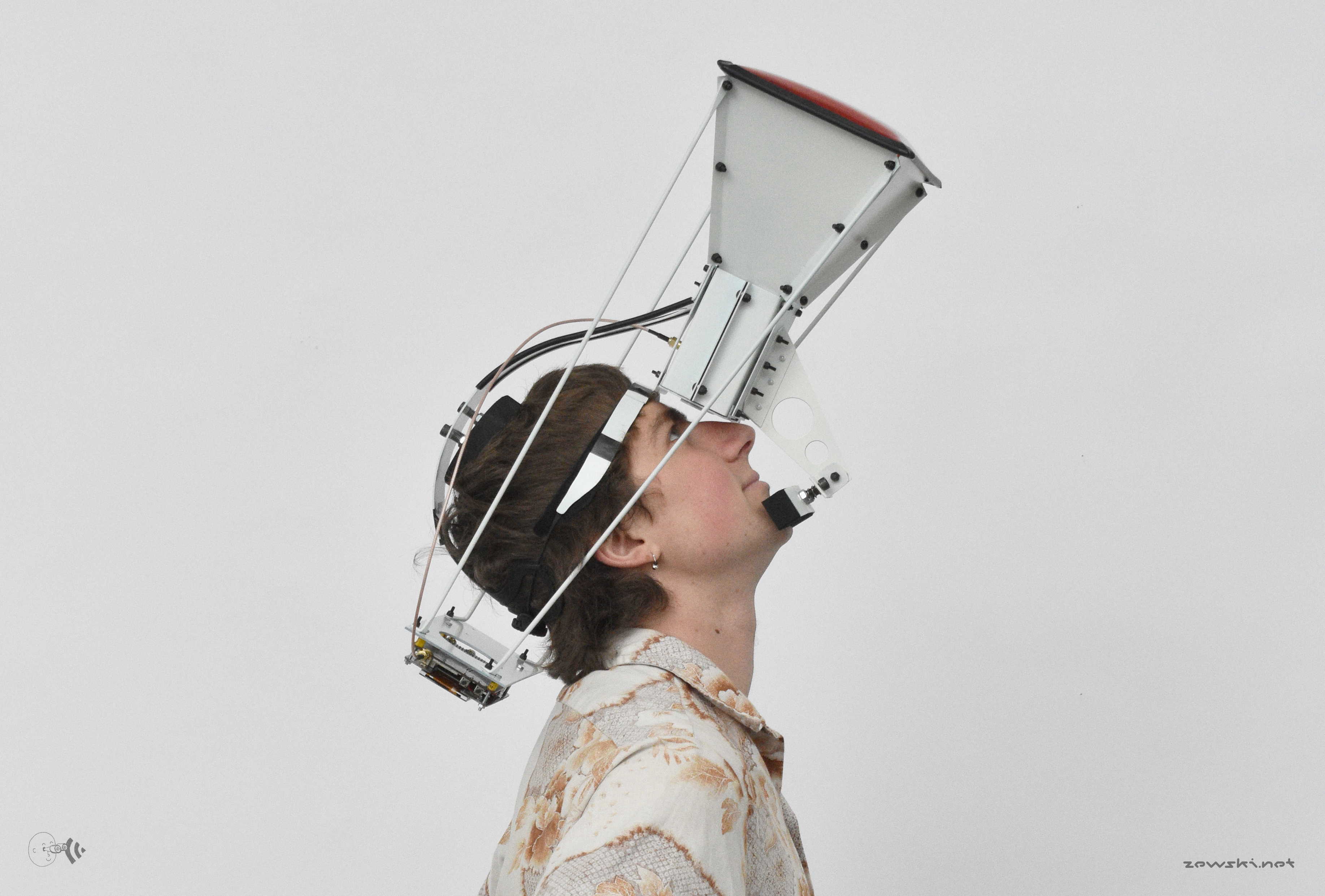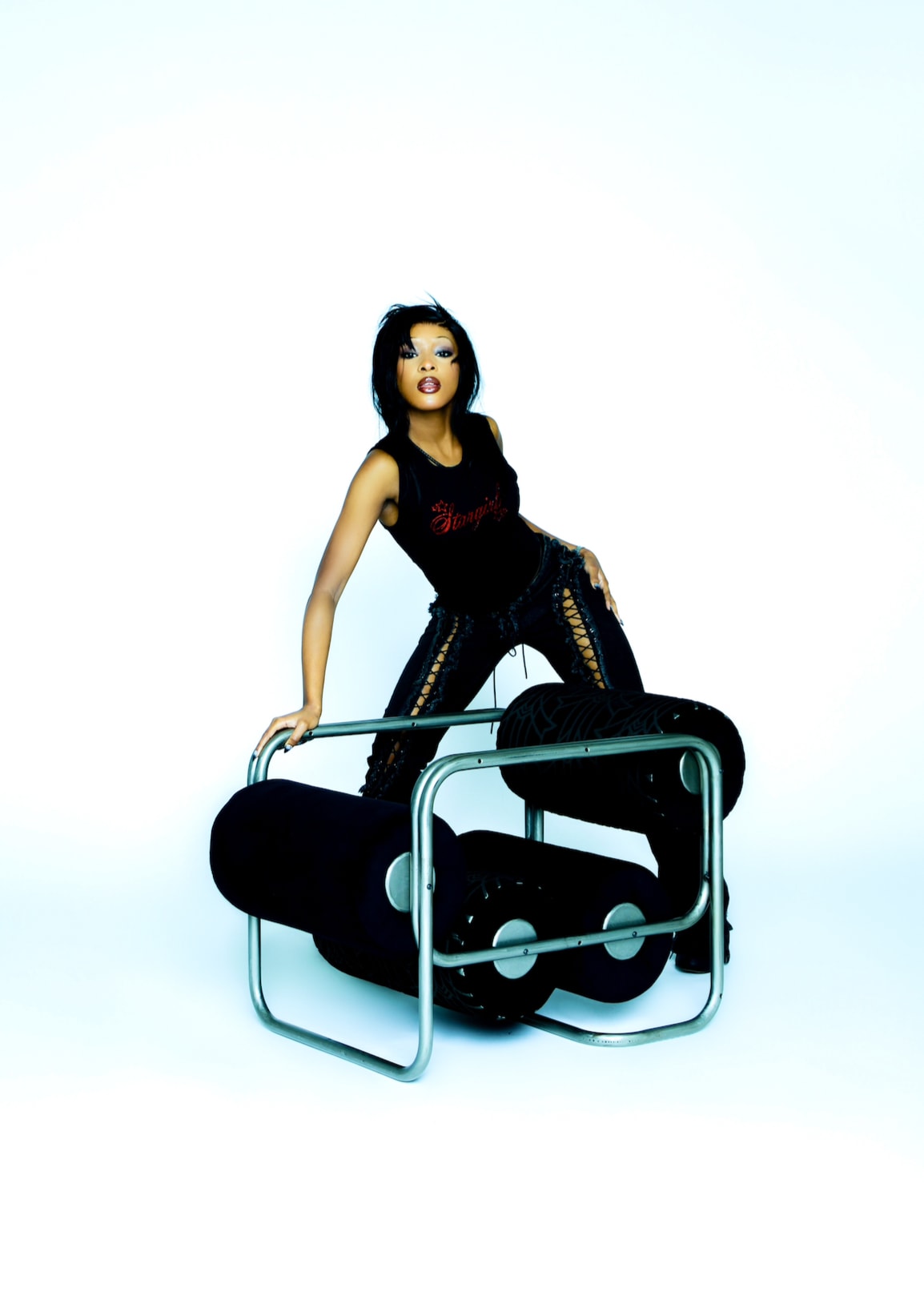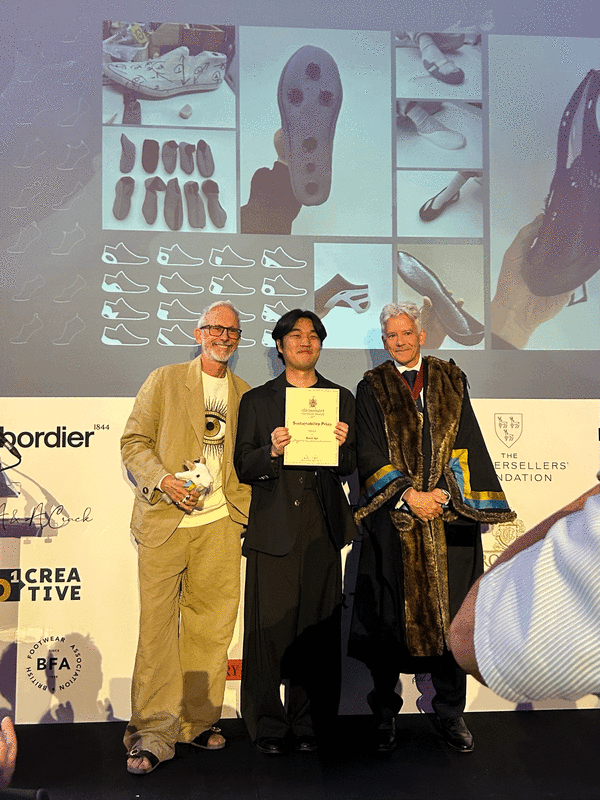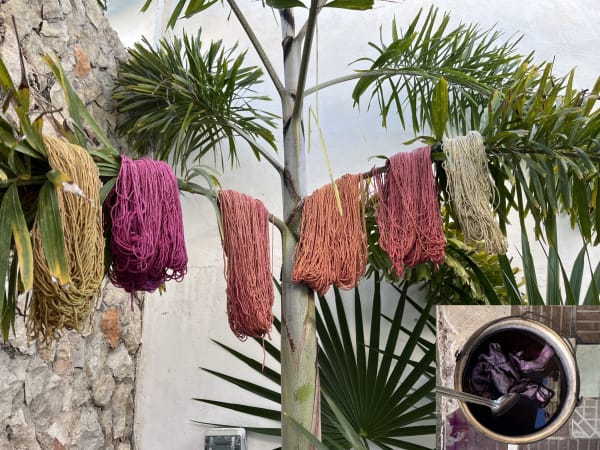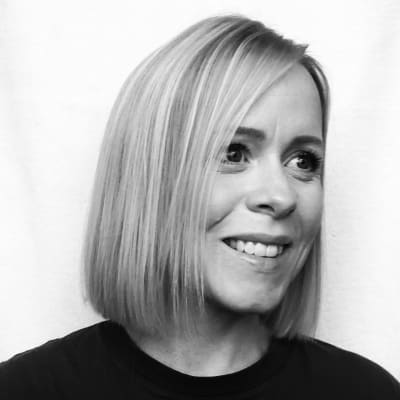Course units
What is Product and Industrial Design at CSM?
As the Product Design course at Central Saint Martins, BA Product and Industrial Design is ideally located within the Kings Cross creative hub development and close to many creative tech industry businesses. We educate students to become designers who are valued by industry for their creativity and the perspective they bring.
Positioned within S-School, which focuses on design courses that both challenge and intervene in systems, this course encourages students to become changemakers in the industry, using curiosity, creativity, and ambition to shape futures. You will learn how to design products that positively impact society and the environment, asking "why" before you create.
Driving the design process of creating products and services are our key subject areas:
a. Contextual Studies – providing knowledge of the factors that drive the reason to design,
b. Technical Studies – enabling the realisation of concepts, and,
c. Sustainability Studies – highlighting the changing environment within which we design.
Engagement with these subjects will guide and deepen your creative thinking, helping you become an adaptable and industry-ready designer.
The evolution of the course reflects how the product design discipline has gained a broader creative remit within industry. Our approach is to offer a platform-based structure with three key areas: Physical, Digital, and Hybrid design, preparing you for a wide range of industries and roles. These reflect how the skills required to design products and services has evolved alongside digital innovation. You may develop skills as both a specialist and a generalist through hands-on projects, real-world challenges, and exposure to diverse sectors. The platform choices are negotiated between students and tutors taking into account both practicalities and a student-centred learning journey.
The Three Platforms:
1. Physical platform
Skills acquired may cover visual language development, form development, Colour Material & Finish (CMF), Material properties, crafting skills, Design for Manufacture, Mechanism development and Design for Repair.
Examples of Physical platform sectors are: Furniture, Fast Moving Consumer Goods (FMCG) and Homewares.
2. Hybrid Platform
Skills acquired may cover UX, Electronics, Ergonomics, behavioural psychology, visual language development, Internet of Things and Physical computing.
Examples of Hybrid platform sectors are: Consumer Electronics, Capital Goods, Medical tech, Mobility and Product-Service propositions.
3. Digital platform
Skills acquired may cover service blueprints, Visual Design, UX/UI, social psychology, Graphics.
Examples of Digital platform sectors are Service Design for Local Authorities, Public Sector businesses, Healthcare.
The key shared subject areas, Contextual Studies, Technical Studies, and Sustainability Studies, will guide and deepen your creative thinking, with the course delivering to the climate, social and racial justice agenda of UAL. Knowledge gained from these areas will help you become an adaptable and industry-ready designer.
Stage 1 – Skills
In your first year of study, you will focus on developing key skills essential to the product design process and try all three platforms. This stage is designed to balance individual and group work, fostering both personal growth and collaborative learning. You will have the opportunity to build connections within the course and College community through four consecutive units.
Unit 1: Introduction to Study Product and Industrial Design in Higher Education
Unit 2: Establishing Individual Design Skills (Platform-Aligned)
Unit 3: Developing Design Skills (across Platforms)
Unit 4: Creative Unions
Unit 1 helps you transition into higher education and provides a solid foundation in the core principles of the design process. You will develop an understanding of design thinking and its application across various contexts.
Unit 2 introduces design platforms to support your individual objectives, teaching the variety of basic skills that designers use in physical, hybrid, and digital design contexts. You will work to solve design challenges, whilst learning how to communicate effectively in a studio setting.
Unit 3 builds upon the individual-based work in Unit 2, focused on developing your individual design skills alongside an increasing involvement with teamwork. You will apply these skills to physical, hybrid, and digital platforms, strengthening your personal design approach and refining your ability to work independently and collaboratively.
Unit 4 is an interdisciplinary unit, where you will engage with students from multiple courses. The focus will be on addressing key global challenges such as climate justice, social justice, and ethics. Through collaboration, you will explore how design can challenge assumptions, inspire change, and promote values of reciprocity, care, and social responsibility.
Stage 2 – Knowledge
Stage 2 represents the Design Process across 4 units, starting with a discovery bias and shifting towards a delivery bias. This is a process of ‘zooming-in’ and ‘zooming-out’. It builds upon the range of platform skills you developed in Stage 1 and provides an opportunity to explore your ideas in greater depth within a selected design platform. You will gain the skills to transition from research to product and service development, bridging the gap between insight and execution. In the form of a journey, designers will utilise analysis of known behaviours and patterns (hindsight) to recognise underlying and valuable new agendas (insight) that enable the ability to define new opportunities (foresight).
Unit 5: Our Futures
Unit 6: Your Attributes
Unit 7: Human Connection
Unit 8: Industry Opportunities
Unit 5: This unit focuses upon Futures and the Bigger Picture. It enhances your Design Research and Visual Communication Skills to build futures literacy and anticipatory skills, and interpret more-than-human design scenarios. You will develop your ability to represent and clarify complex issues visually. This includes using design to communicate ideas, visualise the process of problem-solving, and present findings clearly and effectively. Your learning will be applied to all 3 platforms.
By the end of Unit 5, you will have strengthened your design portfolio in preparation for the Diploma in Professional Studies (DPS) option.
Unit 6: This unit enables student Self-positioning. It will steer you to position yourself into those futures you have articulated in the previous unit. Through a deep dive into a series of texts addressing key issues and discourses impacting on design practice, theory and industry, you will gain substantial knowledge to help you define your own Creative Attributes. The unit promotes creative and critical abundance, encouraging you to define how your skills and attributes will inform your development as a designer. Ultimately, this unit is about figuring out the kind of designer you want to be. You will propose a platform to specialise in during Unit 6. Your final platform choice will be negotiated with your tutors.
Unit 7 shifts towards a more commercial design perspective, with continued focus on your current platform. This unit will introduce you to the relationship between design, storytelling, strategy, marketing and business objectives to effectively communicate your skills and ideas to industry collaborators. You will develop the workshop facilitation skills required to deliver innovative ideas through persuasive argument.
In Unit 8, you will work with industry relevant briefs supported by industry partners or practitioners. This direct engagement with industry objectives will give you valuable insights into real-world decision-making processes and help enhance your employability. The start of Unit 8 provides the opportunity to revisit your platform choice. For Unit 8 and 9, you will pursue one platform, further deepening your expertise and practical knowledge.
Stage 3 – Vision
The final year of study is designed to mark the beginning of your creative career. This stage focuses on pushing your design boundaries and preparing you for professional practice. It starts with a project brief created by yourself to showcase your skills and personal creative attributes through your design agenda. It is followed with live industry briefs, which help deepen your understanding of various design sectors and provide real-world opportunities to practice your skills. At the end of Unit 9, you will share your outcomes with your peers and receive constructive feedback on your platform development. This feedback will guide you in deciding whether to continue refining your platform or to pivot to a new direction for your industry-focused final unit.
Unit 9: Launching – self-identified project
Unit 10: Challenging and Refining Industry Propositions
Unit 9 provides an opportunity for freedom of project objectives, allowing you to test the limits of your skills and explore your interests. In this unit, you will define the direction of your project and career through a written paper. This paper will articulate the narrative behind your project and outline your professional goals, helping you solidify your design agenda as you prepare to launch into the next stage of your career.
Unit 10 begins with tackling complex industry briefs. This unit provides a final opportunity to switch platforms. Building on the skills developed in Stage 2, you will respond creatively to these briefs while integrating input from various subject areas to enrich your project. The final presentation will give you the opportunity to showcase your creative abilities and demonstrate your growth throughout the course.
Subject Areas
Technical Studies
Technical Studies supports students with ‘how’ to design. In alignment with the three platforms offered in the course, Technical Studies will equip you with a comprehensive understanding of physical materials, manufacturing methods, and processes. You will develop practical skills in both 2D and 3D CAD, as well as digital tools and techniques used in service design. Alongside core technical training, you will also attend lectures on emerging technologies, exploring their impact on the design process and the industries they serve. This will help you strengthen your ability to research, specify, and select materials and components for your design projects.
Contextual Studies
Contextual Studies encourages students to ask ‘why’ design, through an exploration of the historical, theoretical, and social frameworks that give products and services their meaning and relevance. In our course, this is taught across the platforms, aligned with the teaching in each stage, creating a dynamic, in-studio learning environment. By drawing on ideas from diverse and sometimes radically different disciplines such as critical theory, planetary discourses, future and anticipation studies, Contextual Studies will challenge and inspire you, enriching your design projects with new perspectives and deeper insights.
Sustainability Studies
Our Sustainability Studies programme forms the foundation for ‘what’ we should design and is structured to cultivate eco-literacy and critically examine the environmental impact of product design throughout its lifecycle, from production to consumption. It explores the evolving roles and responsibilities of today’s designer, with a focus on systems thinking. You will unpack complex sustainability challenges and develop innovative strategies for responsible design practice that address both global and local environmental issues.
Optional Diploma Year
Industry Diploma in Professional Studies (DIPS)
This optional diploma can be taken between years 2 and 3. With support from your tutors, you will undertake an industry placement for a minimum of 100 days/20 weeks. As well as developing industry skills, you will gain an additional qualification upon successful completion.
CCI Creative Computing
Between years 2 and 3, you can undertake the year-long Diploma in Creative Computing. This will develop your skills in creative computing alongside your degree. After successfully completing the diploma and your undergraduate degree, you will graduate with an enhanced degree: BA (Hons) Product and Industrial Design (with Creative Computing).
CCI Apple Diploma
Between years 2 and 3, you can undertake the year-long Diploma in Apple Development. This will give you an opportunity to become an accredited apple developer alongside your degree. After successfully completing the diploma and your undergraduate degree, you will graduate with an enhanced degree: BA (Hons) Product and Industrial Design (with Apple Development).
Mode of study
BA Product and Industrial Design runs for 90 weeks in full-time mode. It is divided into three stages over three academic years. Each stage lasts 30 weeks which includes teaching time and independent study.
You will be expected to commit 40 hours per week to study, which includes teaching time and independent study.
CSM Academic Support is delivered by a team of academics and practitioners working alongside your course to help you progress and achieve your maximum potential as a student. Academic Support can help you to develop your skills in different areas, including critical thinking, research and writing, time management, presentations and working independently and collaboratively. These may be offered as part of your timetabled classes or as bookable tutorials and workshops.
Credit and award requirements
The course is credit-rated at 360 credits, with 120 credits at each stage (level).
On successfully completing the course, you will gain a Bachelor of Arts with Honours (BA Hons Degree).
Under the Framework for Higher Education Qualifications the stages for a BA are: Stage 1 (Level 4), Stage 2 (Level 5) and Stage 3 (Level 6). In order to progress to the next stage, all units of the preceding stage must normally be passed: 120 credits must be achieved in each stage. The classification of the award will be derived from the marks of units in Stages 2 and 3 or only Stage 3, using a dual algorithm.
If you are unable to continue on the course, a Certificate of Higher Education (CertHE) will normally be offered following the successful completion of Level 4 (or 120 credits), or a Diploma in Higher Education (DipHE) following the successful completion of Level 5 (or 240 credits).
